Horizon 2020 Secure Societies – protecting freedom and security of Europe and its citizens
The webcast for the Horizon 2020 Secure Societies Event held in London on 3rd November 2015 is now available online. You might also find it useful to join Innovate UK’s Knowledge Transfer Network – Defence and Security to keep up to date with events, such as the International Cyber Security Forum meeting on 25 & 26 January 2016 in Lille, as well as funding opportunities in this area.
Calls announced in the Horizon 2020 Secure Societies Work Programme 2016-2017 are now being opened. Follow the links to main call page or the specific call, where this is already open. The date given is the funder’s closing date and time (Brussels):
CALL: DIGITAL SECURITY FOCUS AREA
DS-01-2016:Assurance and Certification for Trustworthy and Secure ICT systems, services and components OPEN 12 April 2016 17:00:00
DS-02-2016:Cyber Security for SMEs, local public administration and Individuals 25 August 2016 17:00:00
DS-03-2016:Increasing digital security of health related data on a systemic level OPEN 16 February 2016 17:00:00
DS-04-2016:Economics of Cybersecurity 25 August 2016 17:00:00
DS-05-2016:EU Cooperation and International Dialogues in Cybersecurity and Privacy Research and Innovation 25 August 2016 17:00:00
DS-06-2017:Cryptography 25 April 2017 17:00:00
DS-07-2017:Addressing Advanced Cyber Security Threats and Threat Actors 24 August 2017 17:00:00
DS-08-2017:Privacy, Data Protection, Digital Identities 24 August 2017 17:00:00
CALL: SECURITY
SEC-01-DRS-2016:Integrated tools for response planning and scenario building 25 August 2016 17:00:00
SEC-02-DRS-2016:Situational awareness systems to support civil protection preparation and operational decision making 25 August 2016 17:00:00
SEC-03-DRS-2016:Validation of biological toxins measurements after an incident: Development of tools and procedures for quality control 25 August 2016 17:00:00
SEC-04-DRS-2017:Broadband communication systems 24 August 2017 17:00:00
SEC-05-DRS-2016-2017:Chemical, biological, radiological and nuclear (CBRN) cluster 24 August 2017 17:00:00
 SEC-06-FCT-2016:Developing a comprehensive approach to violent radicalization in the EU from early understanding to improving protection 25 August 2016 17:00:00
SEC-06-FCT-2016:Developing a comprehensive approach to violent radicalization in the EU from early understanding to improving protection 25 August 2016 17:00:00
SEC-07-FCT-2016-2017:Human Factor for the Prevention, Investigation, and Mitigation of criminal and terrorist acts 25 August 2016 17:00:00
SEC-08-FCT-2016:Forensics techniques on: a) trace qualification, and b) broadened use of DNA 25 August 2016 17:00:00
SEC-09-FCT-2017:Toolkits integrating tools and techniques for forensic laboratories 24 August 2017 17:00:00
SEC-10-FCT-2017: Integration of detection capabilities and data fusion with utility providers’ networks 24 August 2017 17:00:00
SEC-11-FCT-2016:Detection techniques on explosives: Countering an explosive threat, across the timeline of a plot 25 August 2016 17:00:00
SEC-12-FCT-2016-2017:Technologies for prevention, investigation, and mitigation in the context of fight against crime and terrorism 25 August 2016 17:00:00
SEC-13–BES–2017:Next generation of information systems to support EU external policies 24 August 2017 17:00:00
SEC-14-BES–2016:Towards reducing the cost of technologies in land border security applications 25 August 2016 17:00:00
SEC-15-BES–2017:Risk-based screening at border crossing 24 August 2017 17:00:00
SEC-16-BES–2017:Through-foliage detection, including in the outermost regions of the EU 24 August 2017 17:00:00
SEC-17-BES-2017:Architectures and organizations, big data and data analytics for customs risk management of the international goods supply chain trade movements 24 August 2017 17:00:00
SEC-18-BES–2017:Acceptance of “no gate crossing point solutions” 24 August 2017 17:00:00
SEC-19-BES-2016:Data fusion for maritime security applications 25 August 2016 17:00:00
SEC-20-BES-2016:Border Security: autonomous systems and control systems 25 August 2016 17:00:00
SEC-21–GM-2016-2017:Pan European Networks of practitioners and other actors in the field of security 25 August 2016 17:00:00
CALL: CRITICAL INFRASTRUCTURE PROTECTION
CIP-01-2016-2017:Prevention, detection, response and mitigation of the combination of physical and cyber threats to the critical infrastructure of Europe 25 August 2016 17:00:00
If you are interested in applying for any of these calls, please contact Emily Cieciura, RKEO, Research Facilitator: EU & International for further assistance.
 It’s with great pleasure that we invite you to submit an abstract to a special track on “Lifestyle and communities: sharing in the digital era” of the ATLAS annual conference. It will take place in Canterbury, Kent, UK, 14th-16th September 2016.
It’s with great pleasure that we invite you to submit an abstract to a special track on “Lifestyle and communities: sharing in the digital era” of the ATLAS annual conference. It will take place in Canterbury, Kent, UK, 14th-16th September 2016.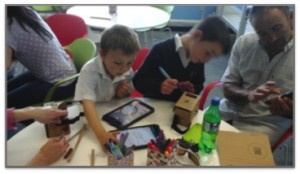




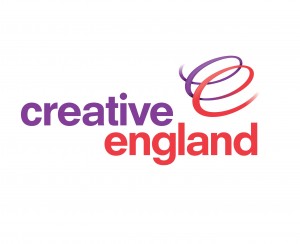


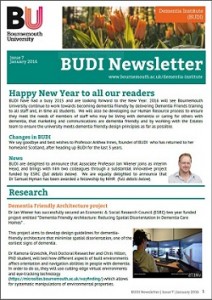



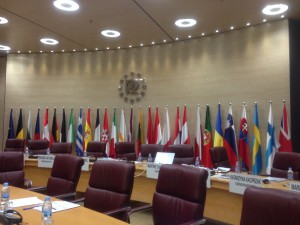





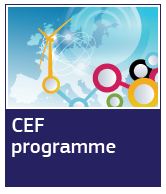











 BU Professor has been invited to a series of plenary and invited lectures.
BU Professor has been invited to a series of plenary and invited lectures. Research reaching non-academic audiences
Research reaching non-academic audiences April’s Café Scientifique – Should we help machines understand and respond to our emotions?
April’s Café Scientifique – Should we help machines understand and respond to our emotions? Postgraduate Research Experience Survey (PRES) 2024 – 2 WEEKS LEFT
Postgraduate Research Experience Survey (PRES) 2024 – 2 WEEKS LEFT Working with The Conversation: online training session – Wednesday 8th May
Working with The Conversation: online training session – Wednesday 8th May Apply for up to £1,000 to deliver an event and take part in a national festival of public engagement with research
Apply for up to £1,000 to deliver an event and take part in a national festival of public engagement with research MSCA Postdoctoral Fellowships 2024
MSCA Postdoctoral Fellowships 2024 Horizon Europe News – December 2023
Horizon Europe News – December 2023